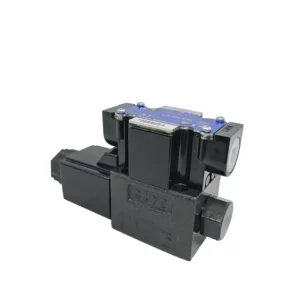Hydraulic pumps are mechanical devices that convert mechanical power into hydraulic energy by pressurizing hydraulic fluid. They are used in a wide range of applications, including industrial machinery, construction equipment, and aircraft.
There are several types of hydraulic pumps, including:
Gear pumps: Gear pumps are the most common type of hydraulic pump and are typically used in low-pressure applications. They use gears that mesh together to pump fluid through the system.
Vane pumps: Vane pumps are similar to gear pumps but use vanes instead of gears to pump fluid. They are typically used in medium-pressure applications.
Piston pumps: Piston pumps are used in high-pressure applications and are capable of generating very high pressures. They use pistons that move back and forth to pump fluid through the system.
Screw pumps: Screw pumps are used in high-pressure and high-flow applications. They use screws that rotate to pump fluid through the system.
The selection of the appropriate hydraulic pump will depend on several factors, including the specific application, the required flow rate and pressure, and the available power source. It’s important to carefully select the appropriate hydraulic pump and to ensure that it is properly installed and maintained to ensure maximum effectiveness and safety.
When selecting a hydraulic pump, there are several factors to consider to ensure that the pump is appropriate for the specific application.
Here are some of the most important factors to consider:
Required flow rate: The flow rate, or volume of fluid that the pump can move per unit of time, is an important consideration. hydraulic pumps for sale near me The required flow rate will depend on the specific application and the amount of fluid that needs to be moved through the system.
Required pressure: The pressure that the pump can generate is another important consideration. The required pressure will depend on the specific application and the amount of force that needs to be generated to move the fluid through the system.
Type of fluid: The type of fluid being pumped is an important consideration. Different fluids have different properties, such as viscosity and temperature range, which can affect the performance of the pump.
Power source: The power source available to operate the pump is an important consideration. Hydraulic pumps can be powered by electricity, gasoline, diesel, or other power sources, and the selection of the appropriate power source will depend on the specific application.
Size and weight: The size and weight of the pump are important considerations, particularly in applications where space is limited or where the pump needs to be portable.
Maintenance requirements: The maintenance requirements of the pump should also be considered, including the frequency of maintenance, the availability of replacement parts, and the cost of maintenance.
By carefully considering these factors, it is possible to select the appropriate hydraulic pump for a specific application. It’s important to ensure that the pump is properly installed and maintained to ensure maximum effectiveness and safety.
